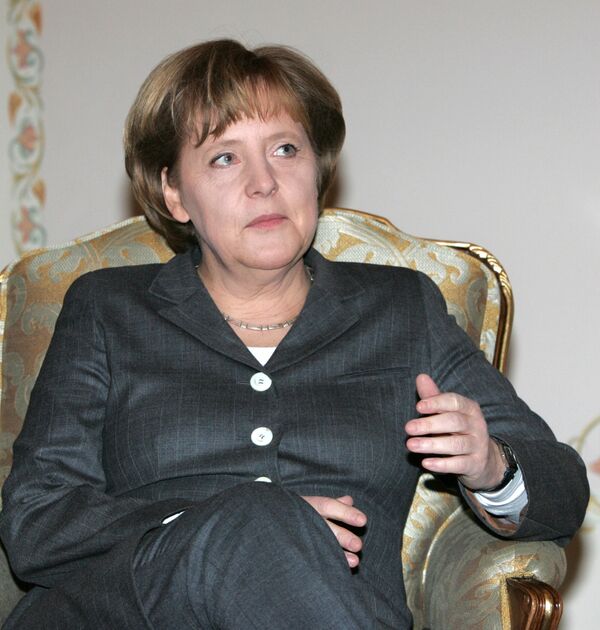MOSCOW, September 28 (RIA Novosti) - It is not in Germany's interests to change its policy towards Russia now that the country's Chancellor Angela Merkel won the general relations, a Russian expert on Germany said on Monday.
Merkel, 55, announced victory for a new coalition of her conservative Christian Democrats (CDU) and pro-business Free Democrats (FDP) after Sunday's polls. The new government spells the end for the "grand coalition" of Merkel's party and the center-left Social Democrats (SPD) that has governed Germany for the past four years.
"Germany has so far established quite stable relations with Russia, and it is not in Germany's interests to shift them in any direction, especially amid the crisis," Nikolai Izvekov, the vice-president of Russia's Foreign Policy Association, told RIA Novosti.
With Germany hit hard by the ongoing global recession, Merkel has already pledged to push for economic reform, including plans to continue labor market deregulation and cut 15 billion euros ($22 billion) worth of taxes.
Russian President Dmitry Medvedev said last month that bilateral investment between Russia and Germany had increased since the start of the year despite the ongoing economic crisis, although he did not provide any concrete figures. In 2008 trade almost reached $68 billion.
The two countries are involved in a number of projects, including the construction of the Nord Stream gas pipeline under the Baltic Sea, and earlier in September a consortium of Austrian-Canadian Magna and Russia's largest state-run bank Sberbank agreed to buy the ailing German automaker, Opel.
Commenting on the shift in German political forces after the election, Izvekov said that the SPD had been hurt by being the junior coalition partner with the CDU and its Bavarian sister party, the Christian Social Union (CSU).
That pushed voters towards the smaller parties, with the FDP, the Greens and the Left party all making strong gains, which Izvekov said could be interpreted as a swing to the left.
"This concerns not the party in power, but elections as a whole. The alignment of forces in the future parliament will be a little different," he added.
According to television reports, the center-left Social Democrats scored 22.5%-23.5% of the vote, while the Left Party and the Greens received 12%-13% and 10%-10.5% of the vote.
However, the CDU/CSU and the FDP, with around 33% and 15% of votes, respectively, will form a coalition to the right of the outgoing government.


